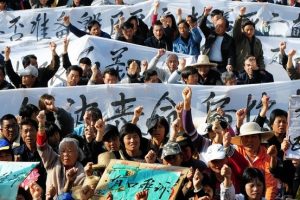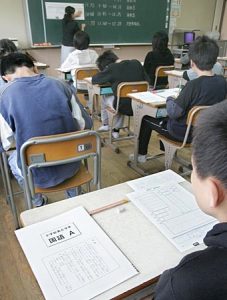Canada-China Education Projects (Video Interview with Dr. Ruth Hayhoe) (Part 2/2)
Memo #162 – In part two of our interview Dr. Hayhoe provides insight on how the next generation can learn from previous Canada-China education projects. She discusses what Canadians can gain from the Confucian tradition of education, analyzes Hong Kong’s education system in response to influences from mainland China, and shares her goals for the project.
Canada-China Education Projects (Video Interview with Dr. Ruth Hayhoe) (Part 1/2)
Memo #159 (Video) – In this interview, based on a lecture at The University of British Columbia in May 2012, Dr. Hayhoe reflects on the arc of previous Canada-China education projects, Canada’s legacy, and mutual learning and lessons for each state partner
Drivers’ Education in Japan: Personality Tests and ‘Road Rage?’
Memo #158 – There is no Japanese equivalent for the term “road rage.” Yet Japanese psychologists and the public are aware of the emotional dimensions of driving. A 2001 article in the Japan Automobile Association’s monthly magazine discusses the propensity of some for angry driving (ka ka unten). Since 1996, Japanese automobile insurance rates have been adjusted to penalize drivers who cause accidents. But such neoliberal forms of governance have not replaced forms of moral suasion and self-reflection that have a long history in Japan.
China – Global Shipping, Coal Usage, High Speed Train Corridors (Video Interview with Dr. Claude Comtois)
Memo #155 – China is a driving force in global shipping, coal usage, and high speed train corridors. Based on a series of lectures at The University of British Columbia in February 2012, Dr. Claude Comtois argues, that in combination these three developments have enormous implications for China and the world.
Asia in the Governance of Outer Space
Memo #154 – In 2011, the United States Secretary of Defense and the Director of National Intelligence called global attention to the congested, contested, and competitive nature of outer space activities. All space powers, including in Asia, continue to struggle with the safety and security of assets that undergird their modern economies, militaries, and societies. The practical issue is how to achieve national objectives, some of which are only possible in collaboration with others.
Taiwan’s Liberal Values may Corrode China’s Authoritarian System
Memo #153 – Hong Kong was returned to the People’s Republic of China (PRC) on July 1, 1997. The island maintained rule of law and civil liberties. Socially, economically, and politically, there has been some degree of convergence under the “one country, two systems” system. Hong Kong has become more open to mainland tourists and students, and in the process taught them the importance of liberal values, such as freedom of speech, protest, and assembly. On the other hand, mainland China has converged with Hong Kong as its economy and society have become far more open than ever before.
Japan’s Culture Industries: Cool or Cruel?
Memo #152 – The world loves sushi, J-pop, and manga. Now the Japanese government is in on the act. The Ministry of Economy, Trade and Industry (METI) has a Cool Japan / Creative Industries Policy, and in January 2012 launched Cool Japan Daily, a blog introducing Japanese pop culture. Behind all this are ambitious plans to increase Japan’s share of the global market for culture industries. It tends to be uncritically assumed that pop culture will enhance the Japanese national image, too. The current popularity of music groups such as AKB48 outside Japan indicates the potentially lucrative and beneficial aspects of pop culture promotionalism. But evidence from some international media suggests the need for caution.
Protests in China: Oppositional, or a Reflection of Faith in the System?
Memo #150 – Protests in China are often assumed to be ultimately aimed at regime change. But while protests reflect grievances, they also demonstrate faith that the state will respond to protesters’ demands.
National Testing in Japan and Australia: To Publish or Not to Publish Scores?
Memo #149 – On this April 17, 2012, in Japan, around 30 per cent of years 6 and 9 students have undergone national standardized testing. But Japan isn’t the only country to introduce tests as part of policy efforts to improve student performance. In fact, all advanced countries use tests to assess potential workforce knowledge and skills with an eye towards raising national productivity and surviving global competition. But the exact nature of testing regimes differs per country. For example, Japan and Australia use different mechanisms to direct individual schools towards national goals.
同化と差異化が同時進行する世界の教育政策: 学力テストの日豪比較から
Memo #149 – 今日、全国の小学校と中学校の約30%を対象に全国学力・学習状況調査(以下「学テ」)が実施された。もちろん、こうした全国的な学力テストを導入して学力の向上を図る教育政策は、日本に限ったことではない。グローバル化した「知識経済」において、国の経済的生産性を高め国際的な競争に生き残るには、労働者の知識・技能レベルの底上げが不可欠であり、そのためには全国学力テストを通じて教育の質を向上する必要がある、というのが先進国に共通する政策的見立てである。





